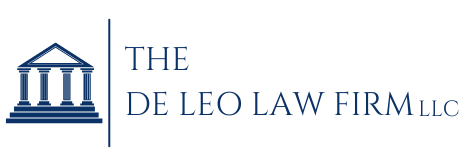Can You Discharge Student Loans Through Bankruptcy in Louisiana?
Understanding Student Loan Discharge in Bankruptcy
Student loan debt has become one of the most burdensome forms of financial obligation for individuals across the country. For Louisiana residents struggling to keep up with student loan payments, the idea of discharging that debt through bankruptcy may seem like a potential solution. But can it be done? At De Leo Law Firm, LLC, we help clients understand their legal options when facing overwhelming debt—including whether student loans can be eliminated in bankruptcy.
Are Student Loans Dischargeable in Bankruptcy?
In general, student loans are not automatically discharged through bankruptcy. Unlike credit card debt or medical bills, discharging student loan debt requires an adversary proceeding—a separate lawsuit within the bankruptcy case. The borrower must demonstrate that repaying the loans would impose an undue hardship.
The "Undue Hardship" Standard
Louisiana bankruptcy courts, like most others, typically use the Brunner Test to determine if a debtor qualifies for student loan discharge. This test requires proving three things:
- Poverty: You cannot maintain a minimal standard of living if forced to repay the loans.
- Persistence: Your financial situation is unlikely to improve during the repayment period.
- Good Faith: You’ve made honest efforts to repay the loan, including exploring repayment plans or loan forgiveness.
Meeting all three of these factors is a high bar, but not impossible—especially with the right legal guidance.
Recent Changes That May Help
In recent years, courts and the Department of Education have shown increased flexibility in how they evaluate undue hardship. New guidance encourages a more reasonable approach to discharging student loans, especially for older loans, borrowers with disabilities, or those facing long-term financial hardship.
Additionally, federal guidance issued in 2022 has simplified the process for federal student loan borrowers to prove undue hardship when they file an adversary proceeding.
How the Bankruptcy Process Works
If you're considering bankruptcy and want to explore discharging student loans:
- File for bankruptcy under Chapter 7 or Chapter 13.
- Initiate an adversary proceeding specifically to address your student loans.
- Present evidence that repayment would cause undue hardship.
Having a skilled bankruptcy attorney by your side can make a major difference in preparing and presenting your case.
How De Leo Law Firm, LLC Can Assist
At De Leo Law Firm, LLC, we work with Louisiana residents who are overwhelmed by debt—including student loan obligations. We evaluate each client’s situation and help determine whether a bankruptcy filing and adversary proceeding may offer relief. Our goal is to guide you through the process and help you find a path forward toward financial stability.











